At Distillery, we’re focused on engineering excellence. It remains firmly at the core of everything we do, no matter where our business takes us.
This year, our business took us into two new countries: Mexico and Argentina. When we opened up our beautiful new Mexico City office, we asked two of our expert developers, Alexander Ageychenko and Andrew Rumm, to travel there to help hire and train their new Mexico City colleagues. They spent several weeks interviewing candidates, getting to know their new team members, and introducing them to the company culture and processes that help Distillery serve clients worldwide with uncompromising engineering excellence.
We asked Alexander and Andrew to share some of what they experienced on their trip to Mexico City. Read on to learn how they identified the top engineering talent, as well as how they laid a foundation for the strong relationships and communication that help us maintain our high quality standards. They also share some of the challenges, discoveries, and surprises that made the experience personally rewarding. From salsas to Lucha Libre to overcoming cross-cultural communication barriers, Alexander and Andrew’s journey helped us ensure that our Mexico City engineering team was set up for excellence from day one.

So what exactly were you doing in Mexico City?
Alexander: We were hiring new engineers and sharing our company culture. We stayed for three weeks, spending much of the time focused on communication. It was incredibly interesting to take a deep dive into another culture that has totally different rules and customs. The culture in Mexico is just awesome!
It was a challenge to adapt to the new rules, which are obvious to locals but hard to understand for us. But we managed to accomplish it pretty quickly. We also shared our company culture with our new colleagues. Now, we’re set up to understand each other much better.
Andrew: It was an amazing journey. Our colleagues in Mexico City are so different from us in some ways, and so similar in others. But yeah, like Alexander said, we were there to interview new team members and grow Distillery’s new Mexico City office.

How does travel help Distillery to build and maintain a strong team?
Alexander: When we travel somewhere, we can have live conversations with people. It’s an entirely different experience from a video call or chat. You can actually experience other people’s physical presence, and come to understand them better. Meeting someone in person really helps build good relationships. It also helps to solve the misunderstandings and other issues that inevitably come up when you work across long distances.
“Team building” isn’t just another fancy workplace term. It’s a crucially important process of unification that draws people closer to each other, and builds strong friendships. And that really helps in our daily work routines, when you know everyone personally and you feel you can really trust them. It helps avoid stress and build the confidence that you can do anything together.
Another thing is that everybody knows several languages — and that’s not even counting programming languages, which are technical languages, but still languages. Thinking and working in another language environment is a mind-blowing experience. It takes you to a whole new level. Learning your first foreign language is always hard, but when you start diving into a second or third one — you start to notice similarities. You try to get out of your comfort zone. And ultimately, there you are talking with a waitress in Spanish that’s not very good, but she understands you! It really helps when you can overcome the language barrier, becoming able to speak much more freely with each other.
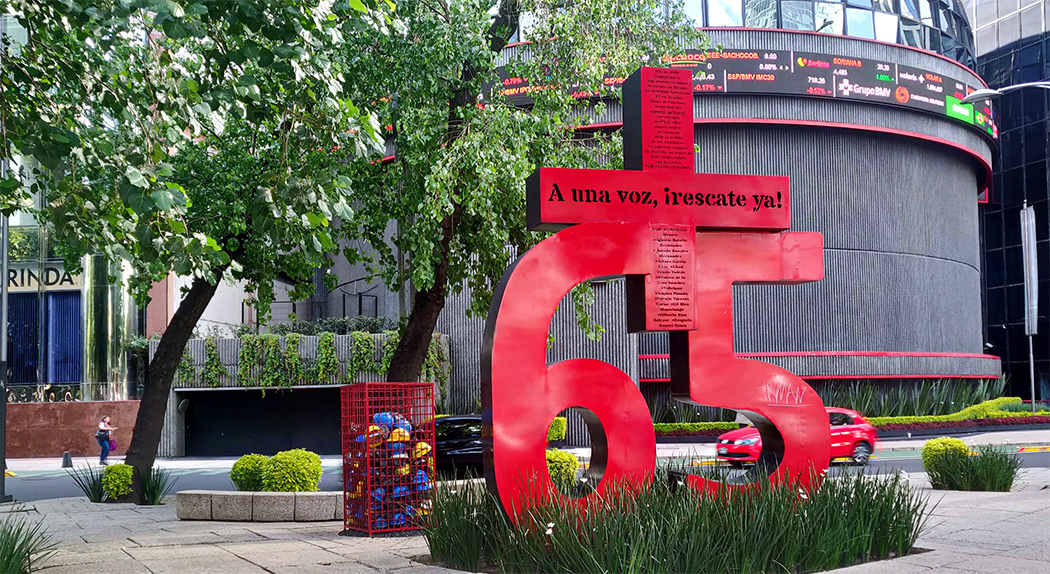
Andrew: Obviously, face-to-face connections really improve your ability to understand needs, experience, and context in general. Diving deep into the environment gave us a better overall understanding of how we should construct the dialogue. After all, communications don’t rely only on what you’re talking about with someone. You need to feel the local vibes, so to speak, and put topics in context.
Also, first and foremost, Distillery is a multinational company. By bringing in new, culturally rich employees, we bring pieces of their culture aboard into our company, making our company culture even stronger, richer, and more expansive. In addition, we make an impact in the local market by bringing our worldwide experience and high expectations. This impact creates new opportunities for these experienced specialists.

What do you look for when screening software engineer candidates?
Alexander: We’re looking for passion and professionalism. These two things are a solid indicator of how far people can get in their careers. When we’re screening more senior candidates, it’s often pretty easy. You can see candidates are experienced and senior by their detailed answers, by the amount of the topics they’re knowledgeable about, and so on. The challenge comes in understanding whether people with less experience are true professionals.
In all my interviews, I try to find a topic that’s comfortable for them and then dive as deep as possible to see how far into the subject they’ve gone. How good are they at answering a particular question? If they’ve dug really deep and are passionate about their knowledge, I know they’ll tackle other issues in the same way and with the same passion.
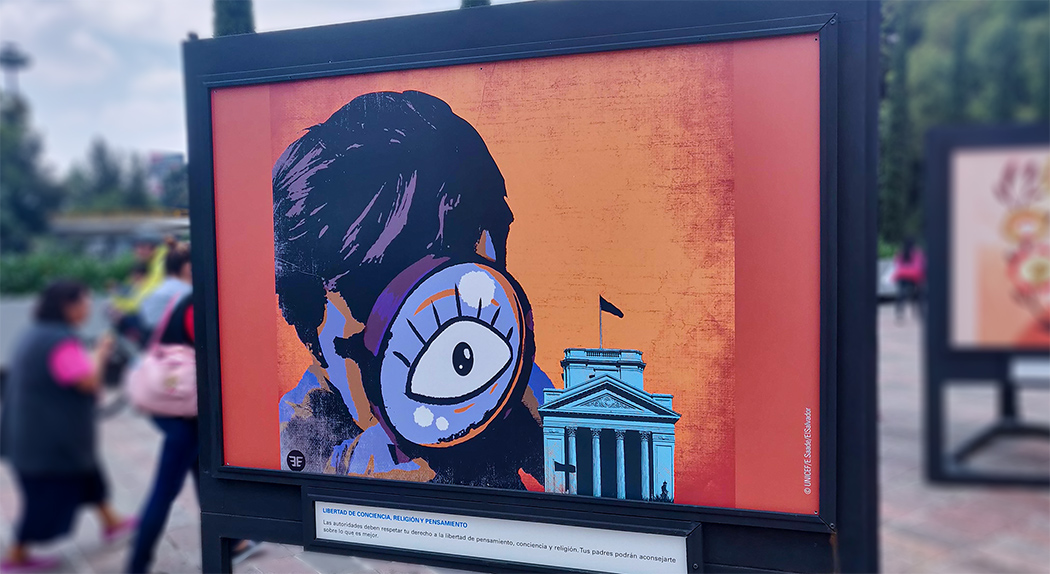
Andrew: There’s no better response than what Alex has already said. Mostly, it’s about putting their experience into perspective, and determining where it intersects with what Distillery needs. How far or high can they “jump”? How much has their own experience prepared them for the teamwork and tests they’ll experience during their projects with Distillery?
A few things surprised me when we were interviewing candidates. Almost every candidate came into the interview without expecting an immediate response. Instead, they welcomed the interview as a way to understand their own skill level in their stack, just in case they have an opportunity to work with our great company. Everyone just wanted to understand how good they are, and what skills they should improve to reach the next level. Still, many candidates were stressed by being in front of a multinational company that has big client names behind it.
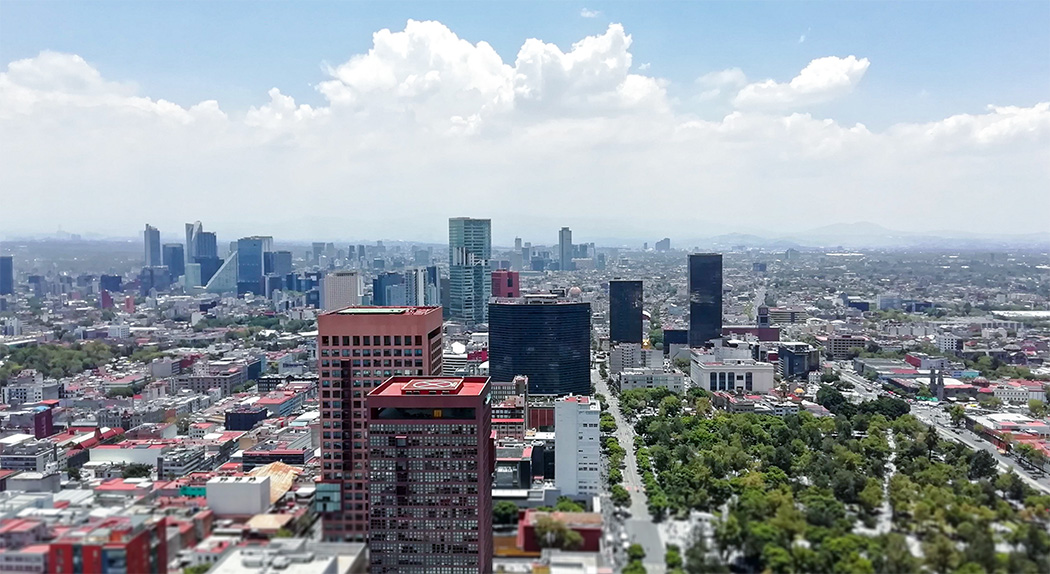
How did you like working in Mexico City for three weeks?
Alexander: Working in Mexico was really fun. We encountered a lot of unusual and surprising things on our trip. A lot of cultural differences turned into similarities, once we understood them better. Sure, a lot of things are different. But many more things are similar.
The biggest challenge was getting used to the difference in our communication styles. The typical communication style in Russia — which is the cultural background Andrew and I come from — is pretty straightforward, using direct speech that may be considered rude by someone not familiar with Russian culture. The communication style in Mexico is the opposite. People are very polite and gentle, putting a lot of meaning between the lines, with a lot of context and a very positive tone. You won’t hear direct requests or direct negative feedback from anyone.
We’ve already successfully adapted to the European and North American styles of communication. But this was a whole new experience. We spent the first week learning all these small things which helped us to communicate better, and become better conversationalists. That helped a lot in our interviews. We also took the opportunity to teach our new colleagues about the communication customs in Russia, how to perceive our direct way of speaking and how to interact with colleagues to reduce friction.
At first, working in a different time zone felt unusual, but it was actually pretty convenient. The development process became virtually non-stop, as when I was finishing my work, my colleagues in another time zone were just about to get started on theirs.
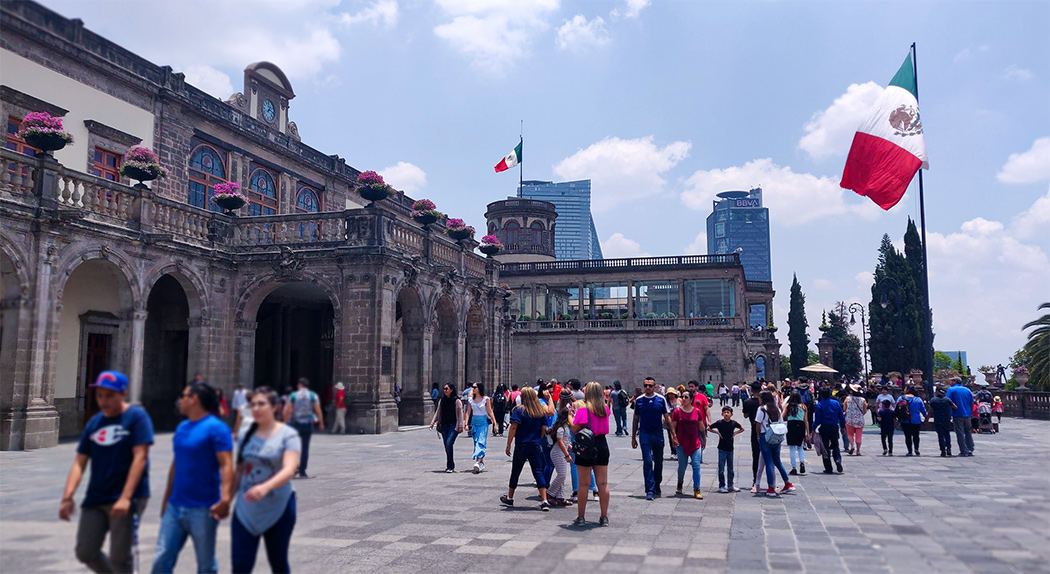
Andrew: It was an incredibly fun and enjoyable experience. Also, the transportation infrastructure is awesome. I was surprised that there are no traffic jams like the ones we’ve experienced in cities with less than a tenth of the population of Mexico City.
Also, there are a ton of plants. There are so many flowers, trees, and parks, and there are tons of birds living and singing inside the city. It’s awesome. There are so many places to visit, great restaurants, and varied cuisines. The city has such fantastic and astonishing architecture! And there’s so much art everywhere — so many museums and exhibitions. The people in Mexico City are incredibly open to self-expression.

What do you think of Distillery’s office in Mexico City?
Alexander: At the moment, it’s our best office. The view is amazing! The infrastructure is very good, and it has pretty scalable dimensions, too. Everything you need is either in the building itself or just around the corner. On top of that, the location is very good. All the main transit stops are no more than two or three minutes’ walk from the building.
Andrew: The office is great. That view… WOW. And yeah, the building’s infrastructure is awesome. It all makes sense. And while it’s not completely perfect, it’s all well-thought-out so that it works for everyone, both employees and employers. It covers most needs. I was impressed.

What new experiences did you have while in Mexico?
Alexander: I really love unusual food, and Mexico satisfied my hunger for new culinary experiences. I thought I knew what “spicy food” was, but I was wrong. Now, I pour salsa on everything. I’ve eaten more than 20 different tacos, salsas of all kinds, and even red cactus worms! Some dishes were similar to things I’ve tasted before. For others, I couldn’t even find words to describe how they tasted. Sopa Azteca and enchiladas are my favorites.
We also visited different cultural sites, like the Frida Kahlo museum, the Museo Nacional de Antropología, and Teotihuacan, which were all fascinating. The view from the pyramids is awesome (they’re not actually pyramids, but we’ll skip that for now). I learned a lot of interesting facts about Frida Kahlo and her relationship with her fellow artist Diego Rivera. We also saw Rivera’s murals in the Palacio de Bellas Artes. They’re really unusual, and it was weird and surprising to see Lenin and Trotsky depicted in some of the murals.
We also learned a bit of Spanish. Ultimately, we were able to speak with waiters in restaurants on a basic level. It was cool to talk successfully with someone in a language you don’t really know! It was hard to break the language barrier, but we managed. “Hasta mañana” is my favorite Spanish phrase. It’s so meaningful, and has some beautiful negligence in it.

Andrew: Well, I’d never been on that side of the planet before. And I’d never lived in, or even expected to see, a city that big before. We spent six hours at the Museo Nacional de Antropología, which helped to create a solid picture of the cultural origins and heritage. And this heritage is still alive, and so rich. Did you know the population of Mayan people is more than six million? Also, it was surprising to learn that, at the beginning of the 20th century, the Russian Revolution had an impact on Mexico’s cultural development. Although we spent all our free time visiting as many sites as we could, we only scratched the surface.
Finally, the cuisine was surprising in many ways. Like when I discovered that they put chili powder in a lot of their candy!

What’s something new you learned about life or culture in Mexico?
Alexander: Traveling and working with people in other countries who speak different languages can be a huge challenge. But it allows us to learn so much about the world outside of what we already know, and to expand our own knowledge. When you face a totally different mindset, and realize that everyone around you has that different mindset, you inevitably start to change. Your thinking and behavioral patterns change to help you accept those differences. It really helps to learn to see everything from a different perspective. You’ll never change back again.
It’s like a 2D character learning to see a 3D world — a life-changing experience. And we took these changes back to our offices, sharing them with our colleagues. In this way, the whole company evolves, along with everyone in it.
Sure, everybody can read stories and watch videos about Mexico. But hearing stories from someone you personally know affects you in a completely different way. I think our experience impacted a lot of people.

Andrew: I learned to never underestimate salsas! And that the Spanish language is very comfortable for Russians.
Also, everybody should experience the Lucha Libre at the Arena México someday! I mean that. Not just to see it, but to really feel it. It’s not just about the arena, but the whole stadium experience. It’s indescribable to be so fully immersed in such an unknown but awesome world.
Now I realize that what I’d known about Mexico was… basically nothing. Our own cultural histories and propaganda have a huge impact on how we understand other countries. There are metaphorical walls between us. But it was great to be able to talk with the people in Mexico about Russia, and vice versa. It’s exciting to open doors, break down those walls, and really explore cultures outside of our own. That’s why I believe we should never, ever stop traveling and exploring.
What was your favorite moment of the trip?
Alexander: Once, we went to a restaurant with a menu entirely in Spanish. No one spoke English there. From all the words required to order our food, we only knew the word “apple” in Spanish. We managed to order an apple lemonade with cinnamon, and tacos and enchiladas without too much chili in them. But it was so much fun, and our attempts to express what we wanted to say were hilarious.
Andrew: I’d like to say I have one. Or two. But no. There were at least two full weeks filled with wonderment, therapy, surprises, fascinating contrasts, and amusement.

Can you tell us about a memorable team outing you enjoyed?
Alexander: What could be a better team-building event in Mexico than a Lucha Libre? Of course we went, and it was awesome. Events with that kind of emotional rollercoaster really unify people.
We also went out to lunch together many times. In this way, we learned a lot about each other, and about our cultural differences and similarities. These otherwise routine lunches are where we ended up having the most delicate, important discussions. Because of them, we learned most of what we learned about Mexico and our colleagues.
Andrew: I completely agree with Alex. Nothing to add here.
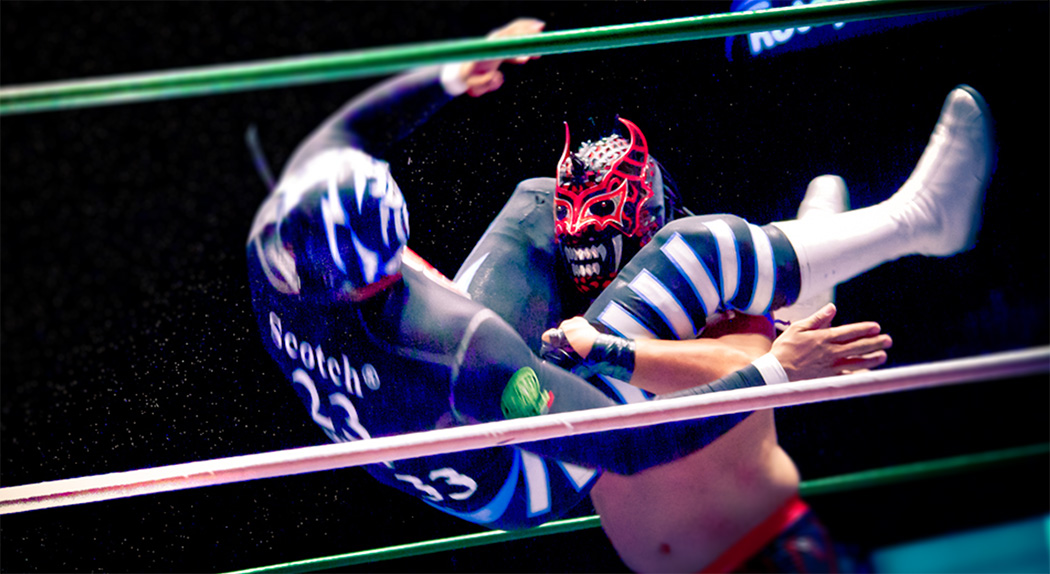
What was the most rewarding thing about your trip?
Alexander: Sure, we gained new colleagues in Mexico. But we also gained new friends. This experience helped us become better professionals — not just from a technical perspective, but as human beings.
Andrew: It was like a shot of adrenaline into your life. You’re propelling yourself toward improving your skills, languages, and communications all at once. You’re making your inner world richer while expanding your goals for your life. Every developer should focus on developing both their inner and outer worlds.
We’re hiring! To view open positions in Mexico City and our other locations, click here.
Want to start getting to know our all-star engineering team in Mexico City? Meet Edgar, a backend developer who’s a compulsive lifelong learner who limits himself to a single cup of coffee daily.

